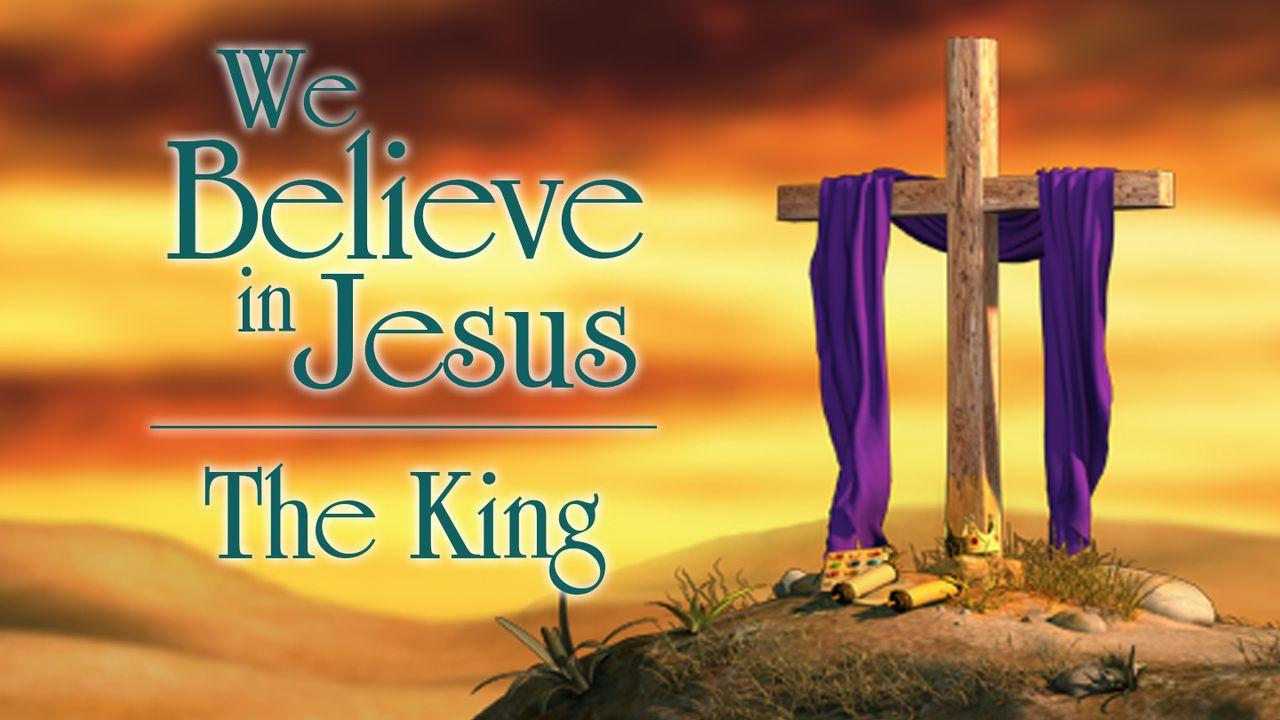We Believe In Jesus: The KingSample

Qualifications for Kingship under Moses: Deuteronomy 17:14-19
As Moses prepared the nation of Israel to enter and conquer the Promised Land, he explained that God would eventually appoint a king over them. And he listed four principles that were to guide the king that God appointed.
Moses listed four principles relating to the qualifications for kingship. First, he said that Israel’s king had to be chosen by God. The people were not qualified to choose a king that would lead them in the way that God demanded. And they didn’t have the right to vest a person with God’s delegated authority. Only God could delegate his own authority. And he would only give it to a person of his choosing.
The second thing Moses mentioned in Deuteronomy 17 was that the king had to be an Israelite. That is to say, he had to be a native of God’s chosen nation. This was to fulfill the covenant promise God had made to Abraham in Genesis 17:1-8, where he swore that Abraham’s heirs would be kings over their people.
The third qualification in Deuteronomy 17 was that the king was to depend on God rather than on human strategies for securing peace and prosperity. Moses listed four ways that kings might turn from dependence on God.
- The king was forbidden to acquire large numbers of horses probably because they were important for his army. The king was to depend on God’s power, and not on human might, in order to secure the nation.
- The ban on returning to Egypt referred to submitting to a larger empire for protection and provision, rather than submitting to God.
- The prohibition against many wives probably applied specifically to political alliances forged through arranged marriages. This was problematic not just because it made Israel dependent on foreign countries rather than on God, but also because foreign wives were likely to serve foreign gods, and to tempt the king to do the same.
- And the command against accumulating large amounts of gold and silver probably referred to unjust taxation. It was not wrong for the king to be rich. But it was criminal for him to become rich by oppressing God’s people.
As a whole, these restrictions ensured that the king would rely on God for the success of his reign and the security of the nation.
The fourth thing Moses stressed in Deuteronomy 17 was that the king was required to demonstrate covenant fidelity to God by receiving, copying and meditating on God’s covenant law. These actions were designed to cultivate personal reverence, appropriate humility and faithful rule.
Scripture
About this Plan

This reading plan investigates the doctrine of Christology, focusing on the person and work of Jesus Christ. Jesus is God in the flesh, the center of all history, and the only hope for the salvation of humanity and creation. This plan explores Jesus' fulfillment of the Old Testament office of king.
More
We would like to thank Third Millennium Ministries for providing this plan. For more information, please visit:
http://thirdmill.org
Related Plans

EquipHer Vol. 3: "Intentionally Crafting Connections"

Gratitude Changes You

Preparing Our Hearts for Christmas

Jesus: The Greatest Gift

Rediscovering the True Meaning of Christmas

Reading With the People of God #8 Peace

A New Year ~ a New Beginning

Living in Increase (Part 12) - Increase in Focus

Where Are You?
